
Estelle Baroung Hughes gave the closing keynote speech at this year’s Association of International Schools in Africa (AISA) conference, opening her presentation with an original song. Estelle shares in her LinkedIn post, "Singing and educational leadership work well together. They both take connection, creativity and vulnerability. Yes school leaders can and should model authentic and personal expression if their goal is to nurture self-acceptance and open-mindedness." Listen to her sing here. Below, she shares her speech and corresponding presentation.
Honorable educators, distinguished school leaders, esteemed conference, facilitators, it is an honor and a privilege to close the AISA conference in 2023 on the theme of UMOJA (togetherness in Swahili).
In my Cameroonian culture, we open such auspicious occasions by pouring palm wine on the ground and honoring ancestors. I will do the latter through the memory of she-roes of African History. First, I turn our attention to Wangari Mathai, Nobel Peace Prize laureate from Kenya whose reverence for nature remains an unparalleled contribution to global education for sustainability, replenishment of natural sources and peace. May her spirit continue to inspire us to honor nature and life.
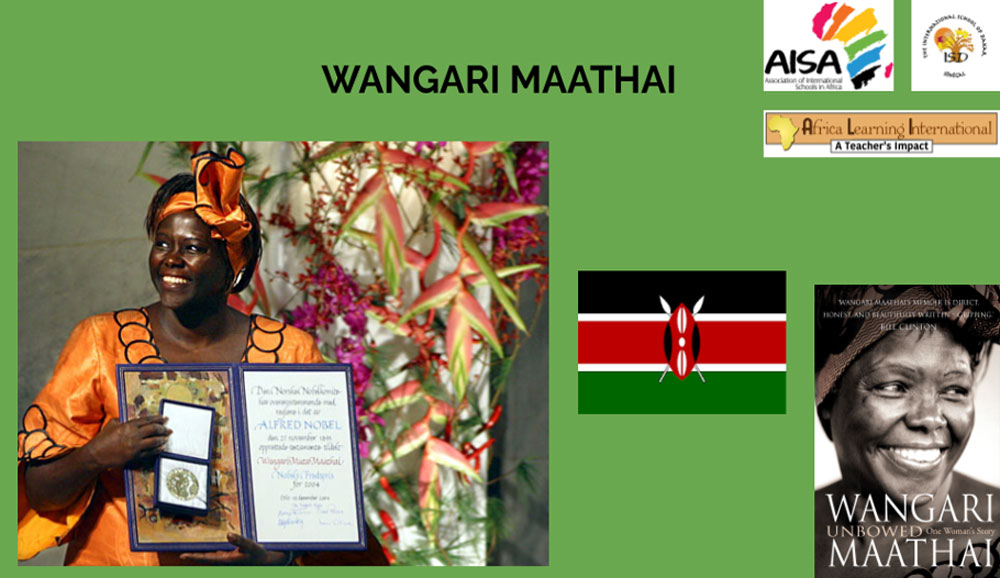
Secondly, I salute Noble Miriam Makeba, singer and Medicine Woman who had to live in exile during the apartheid struggle. She showed the world how music can fight oppression more powerfully and enduringly than weapons. May her sacrifices and talent make us all more courageous and daring in the causes we embrace.
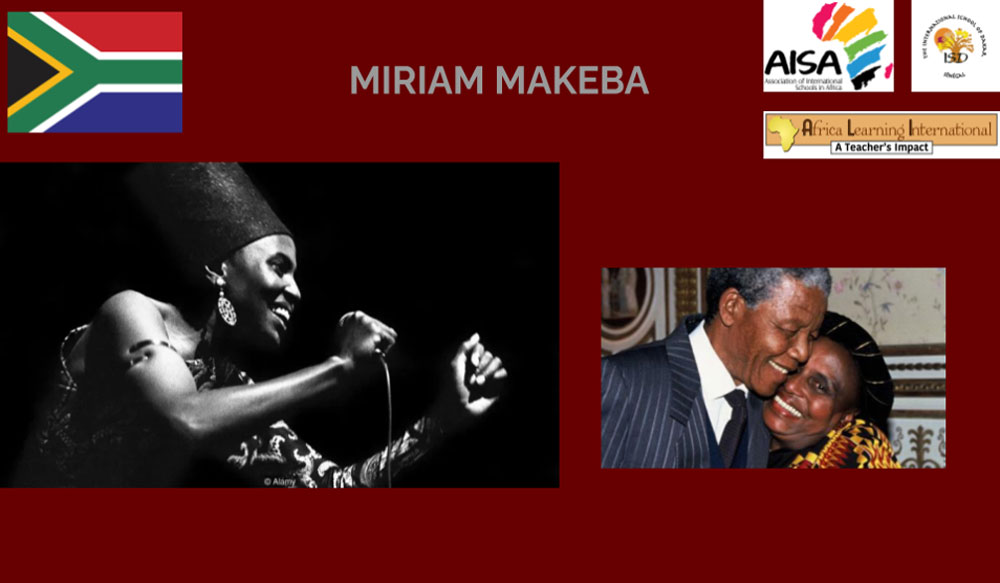
Thirdly, I would like to call the name of Senegalese afro-feminist author Mariama Ba who crafted authentic stories and brought women’s voices to life, as her contribution to gender equality in Senegal and Africa. May the attention she paid to fellow humans and her vision of equity remain with us today and tomorrow.
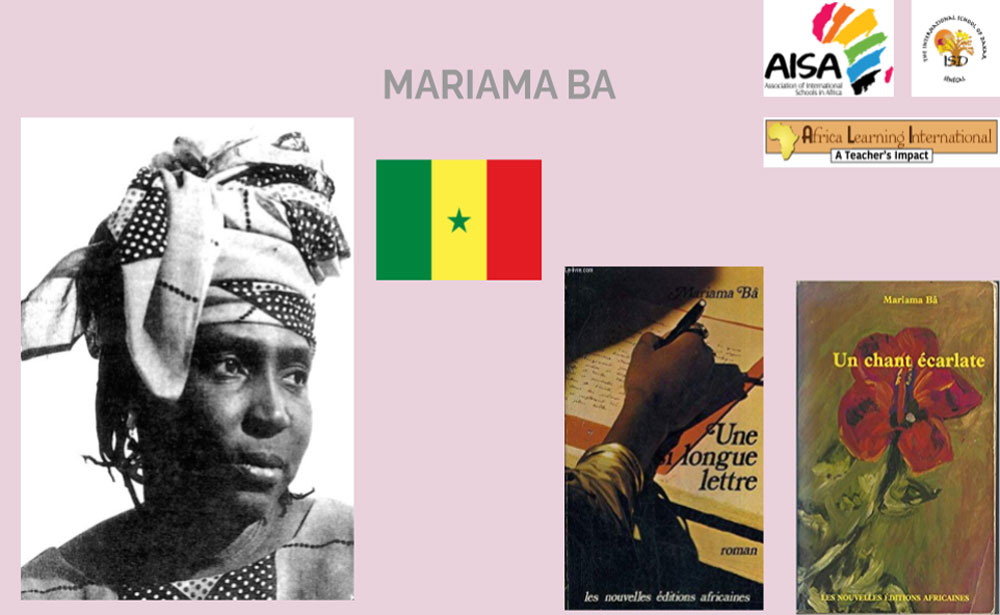
It is also fitting for me to acknowledge the strength and resilience of African women whose names will not be in history books. I am personally thinking of the women who became freedom fighters in the grass fields of Cameroon to resist colonization and male oppression.
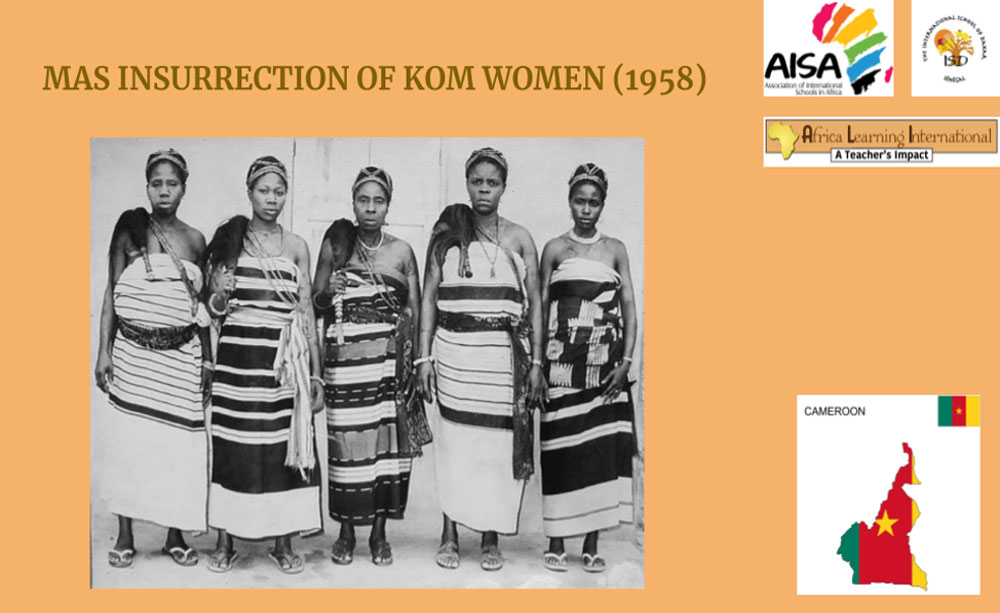
Here in Kenya too, women come together when they need to. They influence politics from within their homes, even bedrooms (the 2009 sex strike for political unity), taking to the streets if necessary. For this, let’s give Kenyan women a sign of our respect.
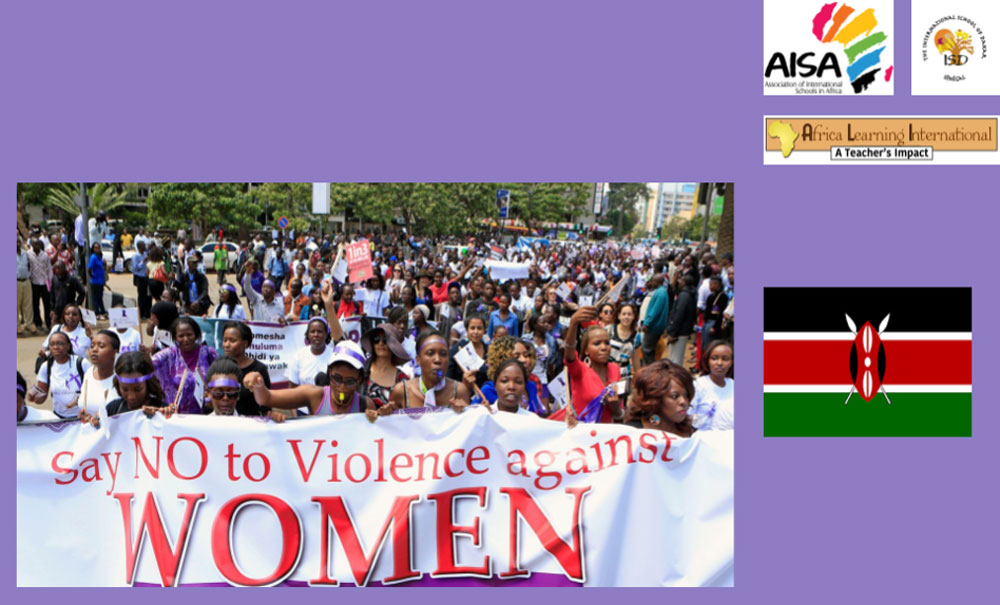
What Is Family in the Spirit of Umoja?
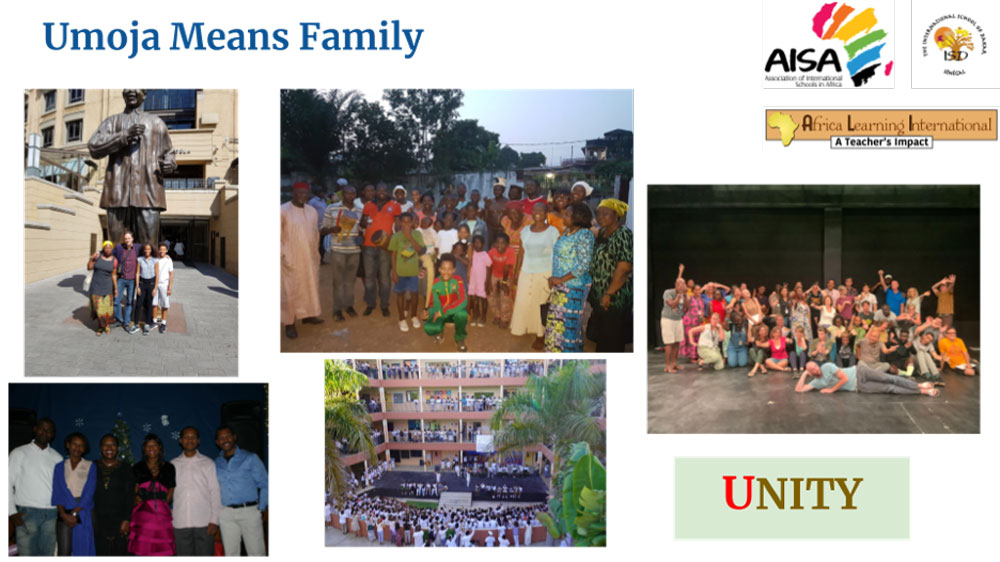
When I was a little girl in Cameroon, I would often refer to my siblings as my brothers and sisters “from the same mother and the same father” (même pere, même mère in French), otherwise people would not understand what kind of “brotherness” or “sisterness” I was referring to: without that specification (same father, same mother), the word brother and sister could refer to:
Brother or sister means all of the above in many countries in Africa. That is the spirit of African Umoja.
For example, the word cousin does not exist in my mother tongue Bafia. There is “goneu” or “gueni” that means brother, sister, and… sweetheart!
The centrality of the nuclear family that we have in the global North is not mirrored in traditional African family structures. The wider communal link is what matters more. In Africa, family is Umoja: it centers community togetherness.
But Umoja is really not an exclusively African thing. It is a human thing. Can you recognize the following ideas in your own indigenous culture?
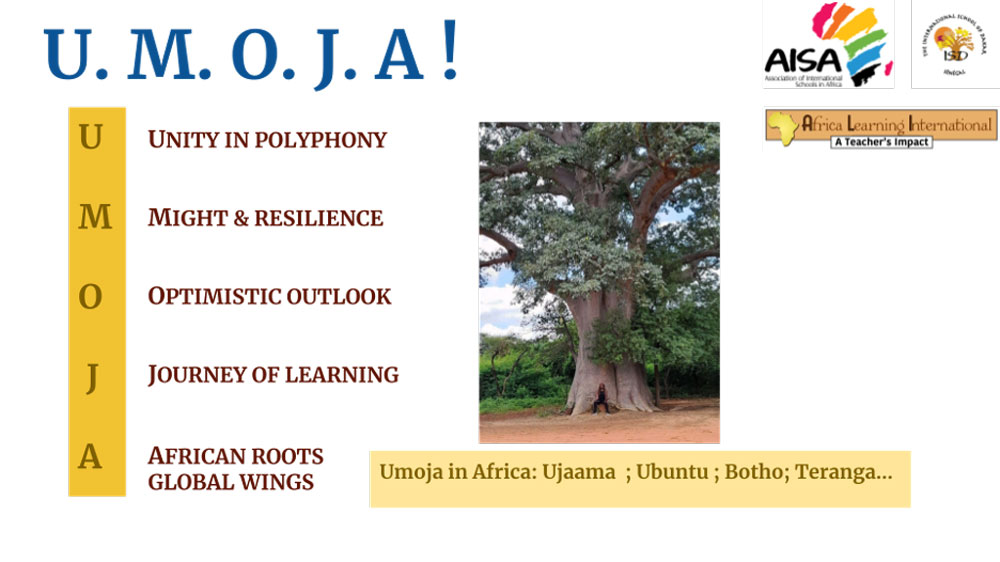
Family Is Not Always Perfect
And you know that, in a loving and united family, there are mistakes that can be made. People can get harmed as a result, particularly children.
That is why we should check our own cultural conditioning when we are at school, to avoid causing harm.
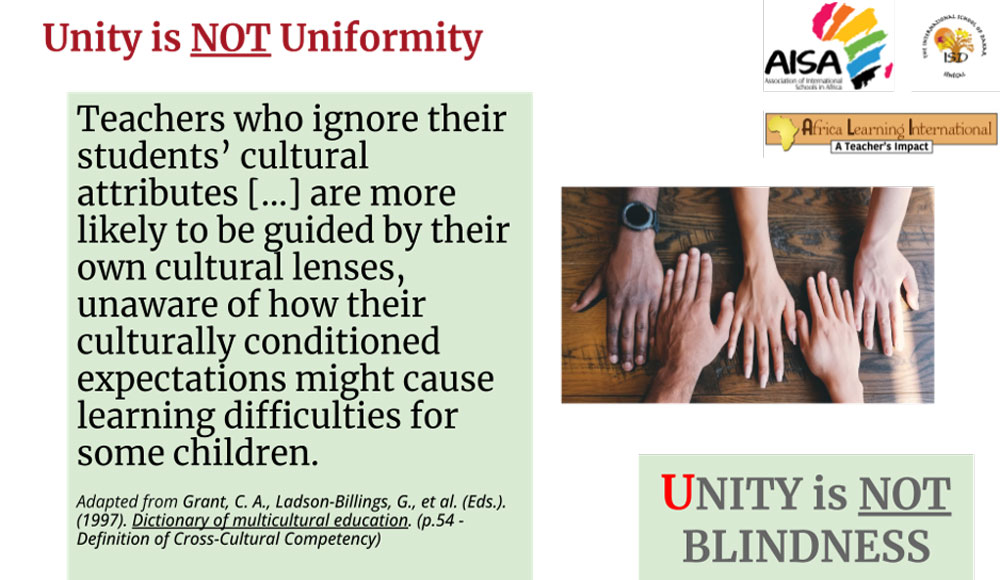
One way we can work on decentering our own perspectives is by taking a step back and centering student voice. Through my daughter Heloise's speech at the UN [United Nation] on the International day for Peace, we can reflect on what we might miss if students have no space to say who they are and what they need.
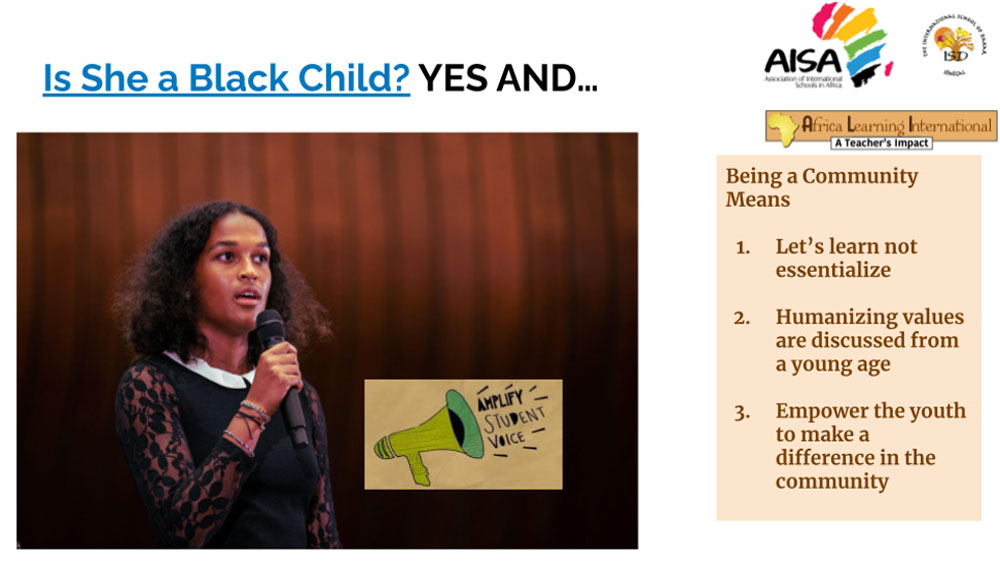
The Power of Intercultural Stories
We are fundamentally gregarious as a species. Even the lonely ones exist in each other's eyes. This is why encounters between humans, teams, genders, cultures, religions, points of view, are important to encourage from a young age. As a teacher of literature, I like to explore texts where cultures meet. They can be powerful in developing self-awareness on the one hand and empathy on the other, which are two traits of change-makers and peace-builders.
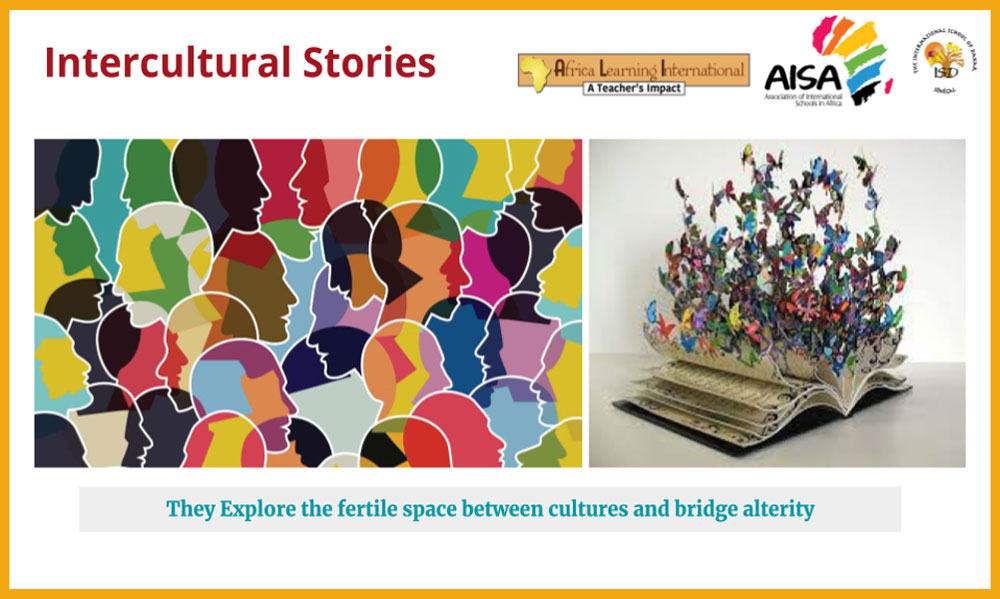
What book can you think of where one individual discovers a new culture and is transformed by it? What film staging a love or a friendship story that is complicated by differences in ability, in world view or outlook in life?
What lessons are taught by these stories? What particular flavor is added when an author depicts her or his own culture meeting another?
To illustrate the beauty of these intercultural spaces where cultures and experiences meet, let’s watch a short clip showing students rehearsing for an intercultural play I co-wrote with them.
Memorizing lines from another culture that are wrapped in genuine emotion, singing songs in a new language and repeating choreographies from another country, all of that creates new neural pathways for intercultural skills to grow organically.
Intercultural competence is the portal that brings us together as one humanity. It is the educational expression of Umoja.
Umoja Is Global Citizenship
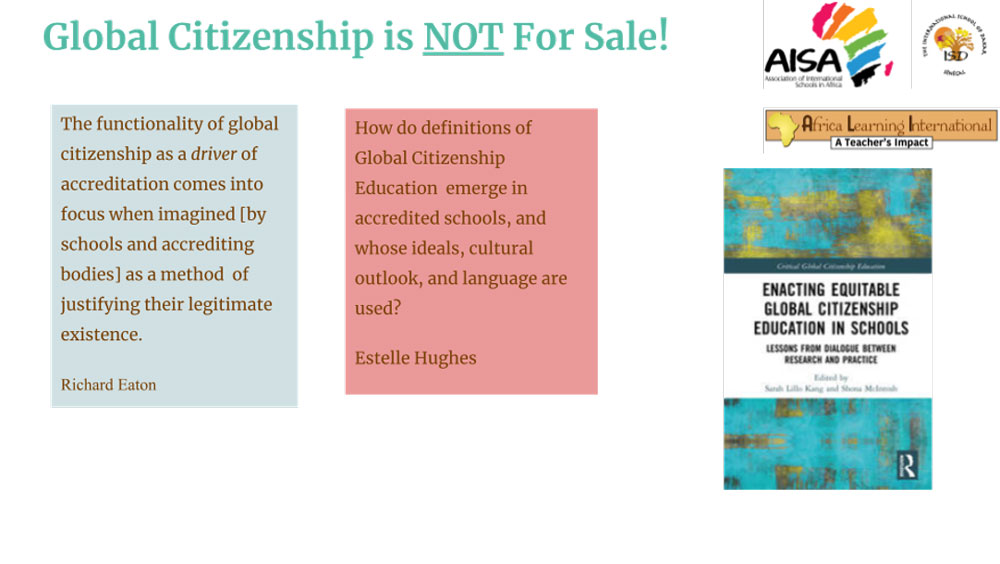
In international education in particular, Global Citizenship Education (GCE) can espouse Umoja in many different ways. But sometimes GCE can also be seen as a little nuisance to take care of for accreditation. I reflected on this in the chapter I co-wrote with Head of School Richard Eaton in the above book. I still wonder: how do definitions of Global Citizenship Education emerge in accredited schools, and whose ideals, cultural outlook, and language are used? Are we truly connecting with the host country’s worldview? At your school is GCE an expression of Umoja or is it a marketing tool?
In TWICE (Teaching With Inclusion of Culture Embedded), the course I have co-created with Estelle Bougna Fomeju, we explore GCE definitions.
GCE can be:
So, I am asking you to think about what global citizenship looks like, sounds like, and feels like at your school. If it is fairly invisible, silent, and absent in everyday school life, then it is time to start the conversation. If it is everywhere, vibrant, and engaging, then it is also time to develop it further by deepening your understanding of indigenous values like Umoja, Ubuntu, Teranga, and more.
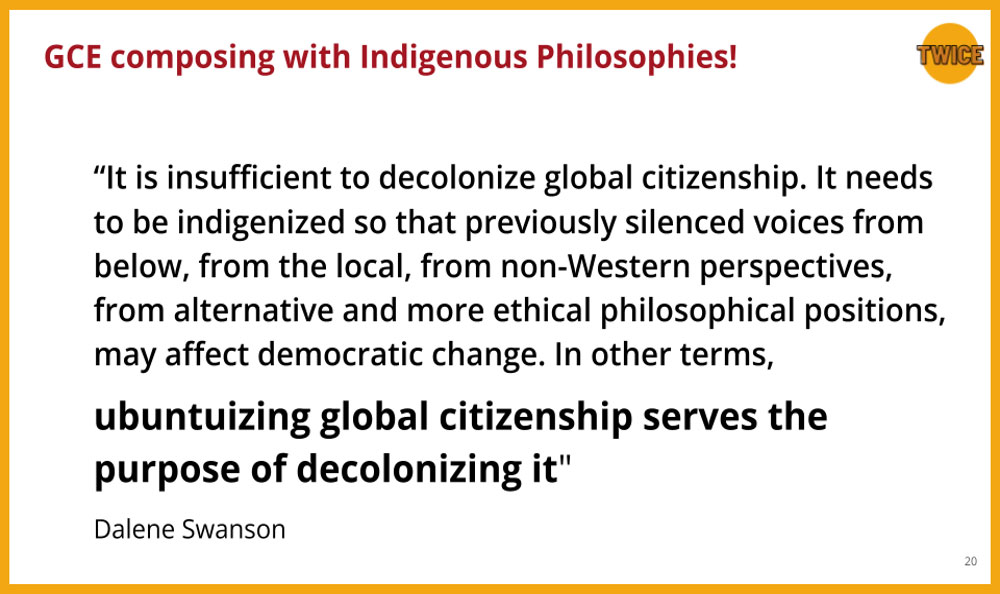
The Importance of Being
Global citizenship should be about thinking and taking action, but it should also be about being. How do we teach our students to stay in a zone of connection and serenity called peace and wellbeing? This should be seen as an international education’s tangible contribution to world peace, to universal Umoja. When we are at peace, we are more likely to spread peace.
Conclusion
Let me leave you with three lessons we should all normalize in our international schools in Africa and beyond, to build a culture of UMOJA:
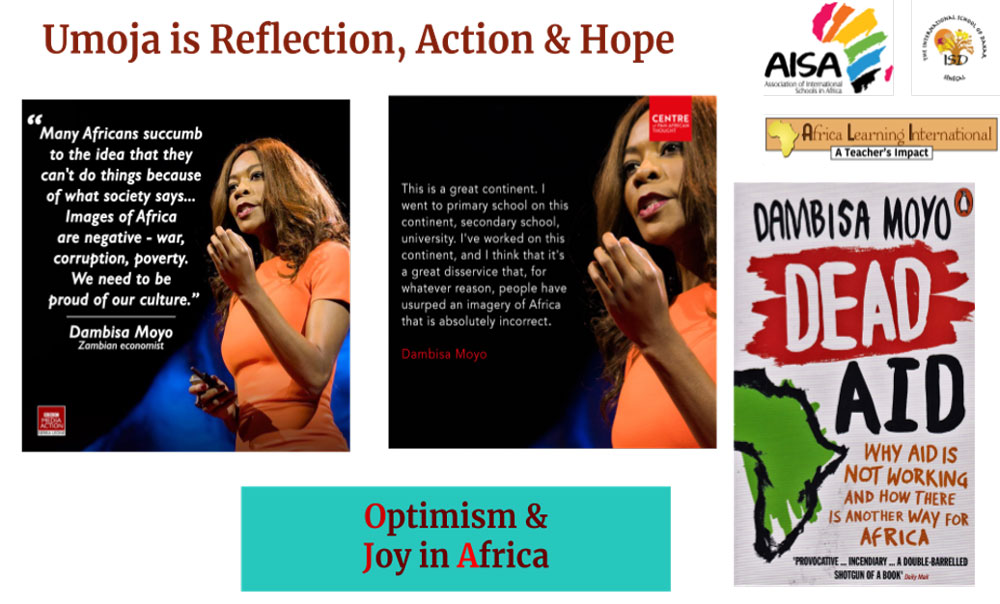
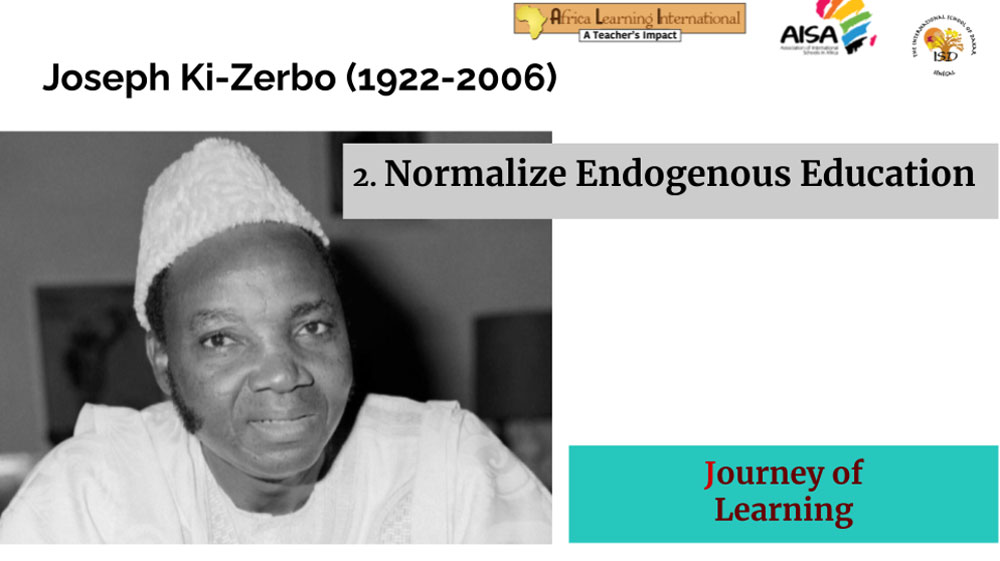
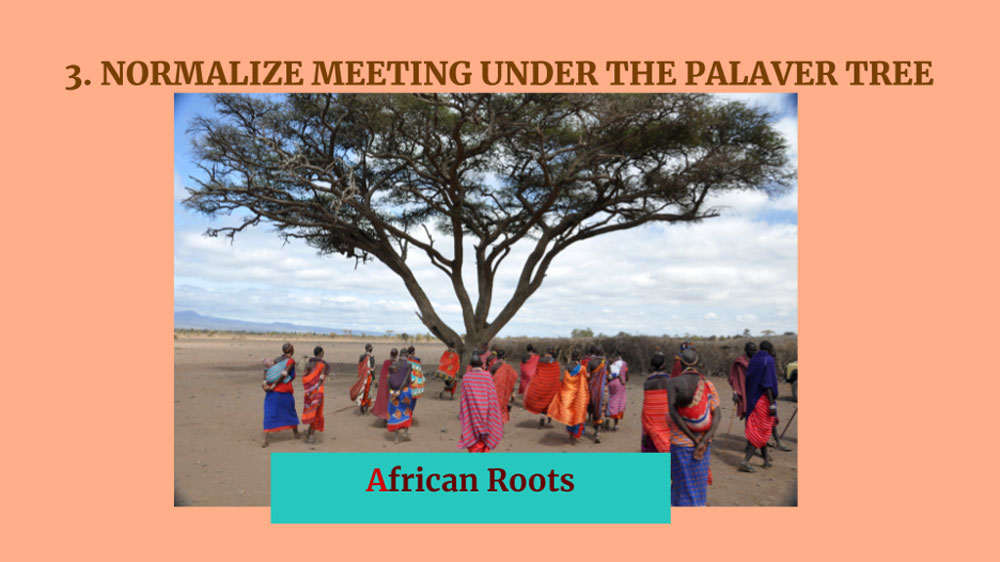
To me, Umoja is a Palaver tree. Conflict resolution, decision making, reflection, celebration, so much happens under a Palaver tree! So, when I dwell under that tree, democracy is no longer about who will obtain the most votes. It is not about the loudest voices but rather about reaching an agreement, accepting a compromise even if it means letting go of some of our demands.
And, last but not least, because Umoja starts with you, keep asking yourself what does peace means to me?
Thank you.
--------------------------------------------------------------
Estelle Baroung Hughes is the Secondary Principal at the International School of Dakar, President at Africa Learning International (ALI), and Honorary President at Cameroonian United World College (UWC) National Committee.